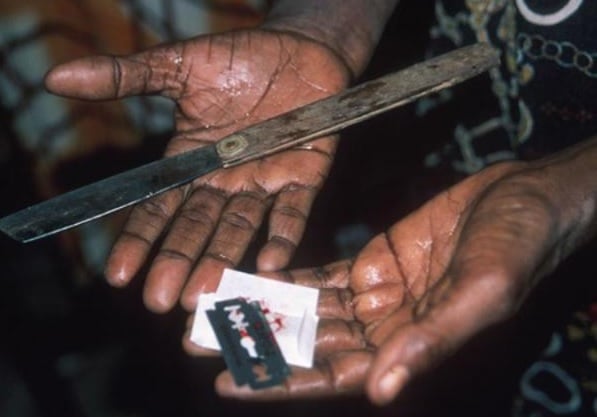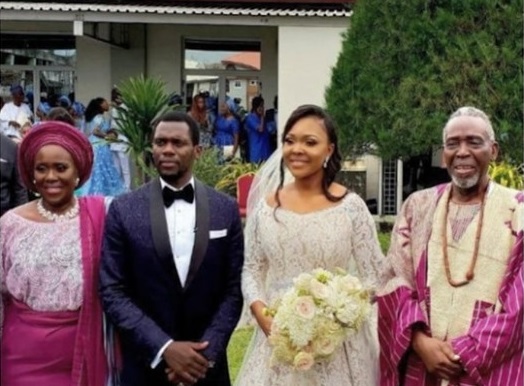In the Nigerian constitution, issues bordering on violation of rights are stated explicitly. Section 15(2) of the 1999 constitution reads in part: “discrimination on the grounds of origin, sex, religion, status… shall be prohibited.”
However, despite the provision of the law, several cultures uphold practices that violate women’s rights.
In spite of protests, sanctions, and court rulings enforcing the relevant laws, Nigeria looks to still be a long way from ensuring that women’s rights are fully guaranteed.
In this report, TheCable presents some practices that discriminate against women.
Advertisement
INHERITANCE
In parts of the country — including in Edo, Akwa Ibom, Cross River and states in the south-east — women are excluded from inheriting properties of their fathers and husbands, and such privileges are usually reserved for sons, with the eldest taking a bigger chunk of the inheritance. In some customs, properties belonging to women are also restricted in terms of distribution.
In 2014, in a case between Onyibor Anekwe & Anor v. Mrs. Maria Nweke, the supreme court passed judgment in favour of Maria, who had been asked to vacate her house by her late husband’s father on the grounds that she bore no male child.
Advertisement
“A custom of this nature in the 21st century societal setting will only tend to depict the absence of the realities of human civilisation,” the apex court had ruled.
“It is punitive, uncivilised and only intended to protect the selfish perpetration of male dominance which is aimed at suppressing the rights of the womenfolk in the given society.”
Despite the verdict of the apex court, women still face discrimination in terms of inheritance. A case in point is that of Michael Patrick Noah and his siblings who had sued Gertrude Ekanem, their aunt, seeking to stop her from inheriting the landed property of Immaculata Noah, her sister, who died without a husband or a child.
In its ruling in March 2021, a high court sitting in Etinan LGA, Akwa Ibom state, described the practice as “anachronistic, primitive and unconscionable”, adding that it should not exist in 21st-century society.
Advertisement
WIDOWHOOD RITES
In some Nigerian communities, when a woman loses her husband, she is subjected to various rites including drinking the water used to bathe the corpse, shaving off her hair, among others.
TheCable had reported an occurrence in 2021 when Chioma Asomugha, a 34-year-old widow from Ubahuekwem in Ihiala LGA of Anambra, raised the alarm over her in-laws’ resolve to force her to drink water used in bathing her husband’s corpse.
More recently, six persons were arrested by the police earlier in March for parading a widow naked in Anambra after she was accused of killing her husband.
Advertisement
GENITAL MUTILATION
The United Nations Children’s Fund (UNICEF) defines female genital mutilation (FGM) as the procedure involving partial or total removal of the female external genitalia or other injury to the female genital organs for non-medical reasons.
Advertisement
While some communities endorse the practice as a means of controlling a girl’s sexuality, it can lead to serious health complications and even death.
In 2015, former President Goodluck Jonathan signed into law the Violence Against Persons Prohibition Act (VAPP Act) which explicitly bans FGM.
Advertisement
But whatever good the ban was meant to achieve is yet to come to completion as even two years after the approval of the law, TheCable had reported how rampant the practice was.
Meanwhile, as of the first quarter of 2022, not all states have adopted the law, while FGM is yet to become non-existent in Nigeria. A report by UNICEF showed that Nigeria has the third-highest cases of FGM globally.
Advertisement
RESTRICTED ACCESS TO RENTAL ACCOMMODATION
Although this may not be classified as a practice, it is quite common in parts of the country for women to encounter difficulties when searching for rental accommodation, as a result of gender discrimination. It is even more difficult for single women.
A StearsBusiness report had detailed how single women find it difficult to get apartments in Lagos.
Another report by the BBC had also revealed how women in Lagos resort to lying about their marital status in order to get rental accommodation.
Add a comment






